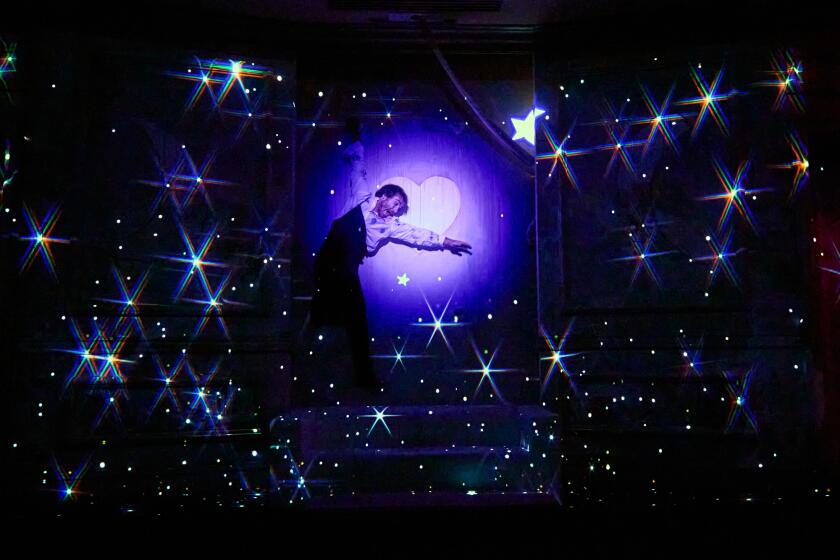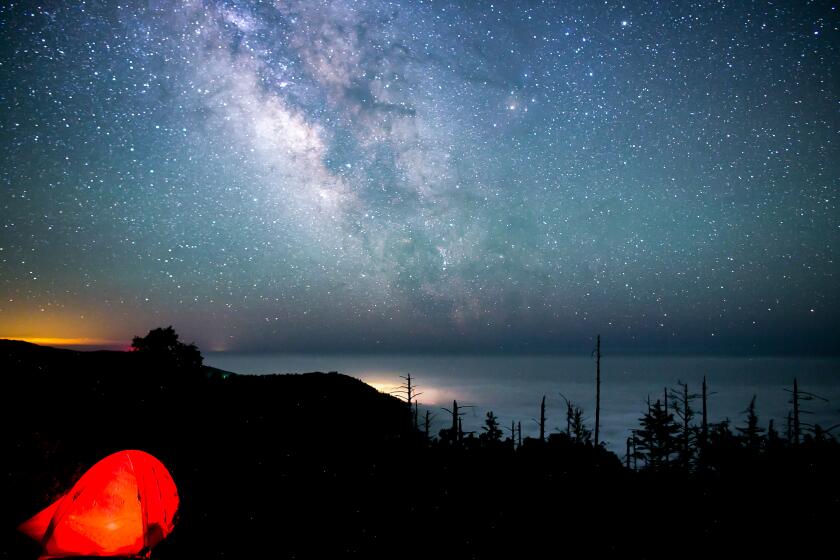If it weren’t for Columbus
IT WAS 500 years ago today, in a small house in Valladolid, Spain, that the man known then as Cristobal Colon (and to us today as Christopher Columbus) gathered around him his two sons, one of his brothers, some seafaring comrades and his seven servants and gave himself over to the last rites of the Catholic Church, knowing he was about to die. At the age of 55, the man who had changed the world more than any other European, before or since, departed it.
Colon had no idea of the magnitude of what he had achieved in his lifetime or of the enduring legacy he would leave behind. He was, to be sure, aware that he had accomplished something extraordinary: “I have placed under the sovereignty of the king and queen, our lords, an other world, whereby Spain, which was reckoned poor, is now most rich.” An other world -- “un otro mundo.” Colon knew that on his third voyage, in 1498, he had found “a mighty continent ... hitherto unknown” and not to be confused with India -- it was South America.
But he always had trouble convincing the rest of the world, including the sovereigns for whom he sailed. That was in large part because he had made a mess of governing the Spanish colony on Hispaniola (now the Dominican Republic), and had ended the third voyage back in Spain, in shackles and in disgrace, accused of misrule and dereliction of duty for ruthlessly trying, and failing, to put down a rebellion of colonists and Taino Indians. No one was paying him much mind by then.
And so the magnitude of his discovery was lost on most of his contemporaries, and it was 10 years before there was any mention of his death.
Indeed, the scope of the admiral’s achievement was slow to dawn on the world. The initial discovery of western islands in 1492 was made known to Europe through a letter of his to the sovereigns telling of his exploits, printed in 1493. But after the last publication of this letter in 1500, very little was made of Colon’s achievement, and none of his arriving at a new continent.
None of that, however, excuses historians in the five centuries since Colon’s quite significant announcement of a new continent. For some unfathomable reason, the settled historical opinion has been that he found some islands and “was convinced until the very end,” as the modern historian Bjorn Landstrom puts it, “that he had reached India, and did not realize that he had discovered a new world.”
What tommyrot. At least by the time of the third voyage, Colon knew that his Indies were not anywhere near India -- in fact he called them Indias Occidentales, West Indies, to distinguish them from lands to the east -- and that they lay off a vast continent that was certainly not Asia.
But if his contemporaries, and negligent historians, paid scant attention to what Colon had done, we at this vantage point can see that his four voyages to the New World were nothing less than the opening of the path to the creation of modern Western civilization.
It was the conquest of the islands of the Caribbean and the empires of the mainland, begun by Colon, that enabled first Spain and then the rest of Europe to plunder the riches of the Americas, with which they established powerful nation-states and developed opulent economies in Europe. It was this that allowed them to create mighty colonial systems across the two continents, and eventually throughout the world, settling millions of their citizens and imposing European culture and customs on the greatest part of humanity for the next half a millennium. It was this that created the underpinnings of the most successful civilization since the Romans -- and by far the richest and most advanced the world has ever known.
But we should understand that the character of that civilization has been shaped by the values and beliefs that were at the heart of European society in the late 15th century and were borne across the ocean by Colon and his followers. This is the Columbian legacy, and it flourishes nowhere more completely than in the nation that chose to name after him its national symbol -- “Columbia” -- as well as its national capital (and 50 cities and countless other sites). This legacy naturally celebrates conquest of peoples and their environments, and it values the material fruits of that conquest above all else, essentially heedless of the consequences of this violence, including death, disease, despoliation and degradation. It prizes the means of colonialism and imperialism, attendant with racism and xenophobia, and has a righteous sense that its creeds and convictions, being superior to all others, may be given to or imposed on other perhaps lesser peoples of the world.
This legacy, left behind by Colon to guide Europe in its conquest of the New World, is of course alive and well today.
Sign up for The Wild
We’ll help you find the best places to hike, bike and run, as well as the perfect silent spots for meditation and yoga.
You may occasionally receive promotional content from the Los Angeles Times.



